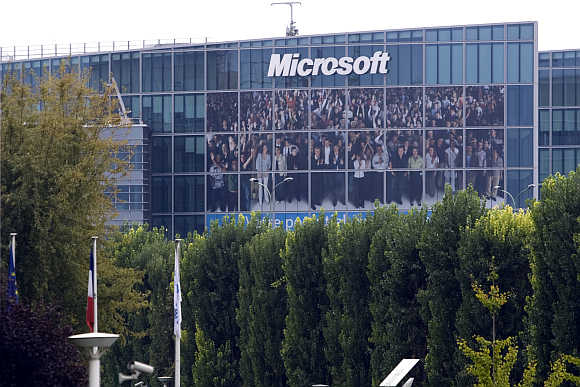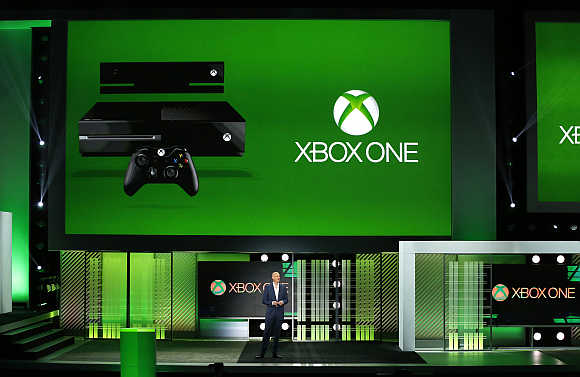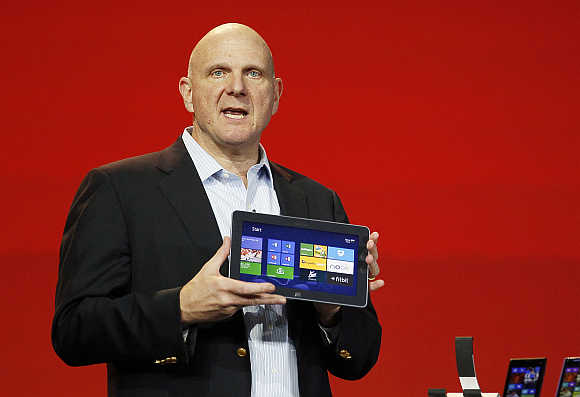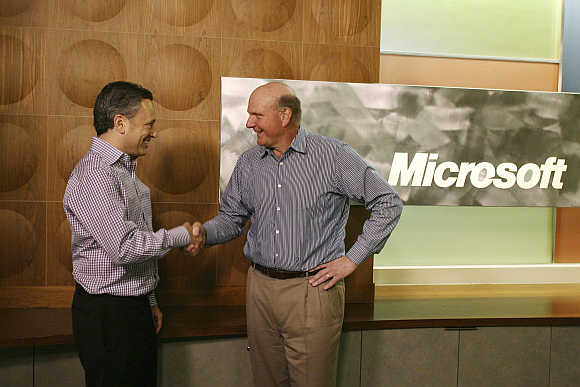 | « Back to article | Print this article |
Microsoft needs narrower focus and more realism
Microsoft's bucket list needs a tad more realism. The US software giant dreamed of "Windows everywhere" in its wildly successful youth. Now, the firm seems to be racking up new experiences while it still has strength.
It has decided not to take on Amazon at e-commerce, according to The Wall Street Journal - and that's good. A narrower focus could prove more rewarding.
Click NEXT to read more...
Microsoft needs narrower focus and more realism
There's nothing wrong with a company trying new things and failing. Microsoft is worth close to $280 billion because it took big risks on unproven technology in the past.
Yet although Microsoft has done well in selling software to enterprises, it has never really figured out consumers or hardware.
Click NEXT to read more...
Microsoft needs narrower focus and more realism
Sure, the Xbox gaming device is now a hit. But the company racked up huge losses for years to get to this point, and consoles are now a fading technology. Moreover, there were plenty of other failures: the orange Zune music player, the short-lived socially networked Kin phone and cable TV stations, for instance.
Click NEXT to read more...
Microsoft needs narrower focus and more realism
The company led by Steve Ballmer still has big ambitions in smartphones and tablets despite poor uptake so far. It's trying to make these products seem cooler with Apple-like retail stores, but anecdotally at least consumers aren't that interested - although a new plan to open stores within fading retailer Best Buy might do better.
Click NEXT to read more...
Microsoft needs narrower focus and more realism
Microsoft continues to plug away at Internet search in the face of persistent losses in its online division, and speculative news reports suggest the company's pipeline includes everything from smart watches to social networks.
Click NEXT to read more...
Microsoft needs narrower focus and more realism
Time and money would probably be better spent on things closer to enterprise software. Building or buying social networking sites aimed at business users - for example, Microsoft paid $1.2 billion for Yammer last year - is the sort of extension that fits.
Last quarter, the company said that Yammer sales were up more than 250 per cent from a year earlier.
Click NEXT to read more...
Microsoft needs narrower focus and more realism
And rolling out lower-priced, cloud versions of its software could be a way to boost sales in countries like China, where piracy is a problem. It's a less esoteric list to tackle while its core business is throwing off cash. But Microsoft has tried to do too much, and done much poorly.
Click NEXT to read more...
Microsoft needs narrower focus and more realism
Dropping the idea of trying to emulate Amazon is smart. Even for a company that once wanted to be everywhere, less can be more. Microsoft explored and recently abandoned plans to build an online e-commerce site to rival Amazon, according to a report in The Wall Street Journal. The company considered using advertising revenue generated by companies on its Bing search engine to subsidise prices.

© Copyright 2024 Reuters Limited. All rights reserved. Republication or redistribution of Reuters content, including by framing or similar means, is expressly prohibited without the prior written consent of Reuters. Reuters shall not be liable for any errors or delays in the content, or for any actions taken in reliance thereon.







